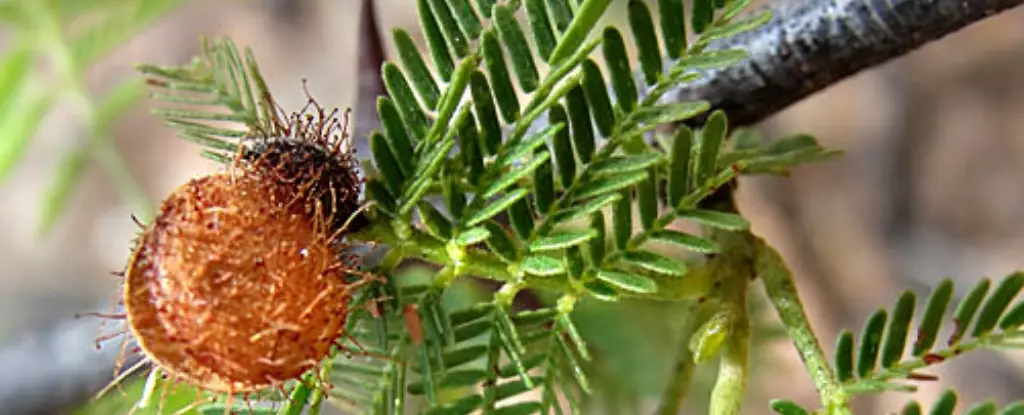In the serene landscapes of Brazil, a plant revered for its mystical properties is undergoing a profound renaissance in the context of modern mental health. Known as jurema preta, this plant has been part of Indigenous rituals for centuries, embodying a deep connection to ancestral wisdom and natural medicine. However, as contemporary society grapples with the rise in depression and anxiety disorders, jurema preta, particularly due to its DMT content, is garnering attention from researchers and mental health practitioners alike for its potential therapeutic benefits.
The allure of jurema preta lies in its roots; roots that contain dimethyltryptamine—an alkaloid that induces intense, often life-altering psychedelic experiences. In recent years, anecdotal accounts have emerged from individuals like Guaracy Carvajal, who sought relief from chronic depression through self-extraction of DMT from jurema roots. Carvajal’s journey highlights an important shift in the narrative surrounding psychedelics: no longer are they relegated solely to the realm of counterculture, but they are being rediscovered as legitimate avenues for psychological healing.
A Scientific Promise
Research led by physicist Draulio Araujo at the Brain Institute of the Federal University of Rio Grande do Norte has begun to shed light on the specific effects of DMT. Through a rigorous study involving 14 participants who inhaled vaporized DMT, Araujo and his team documented notable improvements in depressive symptoms within just 24 hours. Such rapid responses are unprecedented in the realm of traditional antidepressant medications, which often take weeks to show efficacy. Araujo’s caution, however, that “this is not a magic cure,” underlies a critical insight—while psychedelics offer new hope, they are not a panacea.
Fernanda Palhano-Fontes, another leading neuroscientist in this area, adds layers to our understanding by noting the variability of responses among patients. Some individuals enjoy transformative experiences, while others find little relief. This unpredictable response prompts deeper inquiry into how individual differences—psychological, biological, and social—interact with psychedelic substances. The implications of this research are vast; a more nuanced approach is necessary to tailor treatment to individual needs, potentially mixing psychedelics with psychotherapy and traditional medications.
The Intersection of Tradition and Modernity
In Brazil, the cultural significance of jurema extends far beyond its psychoactive properties. It is integrated into spiritual practices where participants often report profound insights and a sense of connectedness. For many, such experiences transcend simple hallucinations and open “spiritual channels,” leading to deeper self-realization and understanding. Young practitioners participating in jurema ceremonies have shared transformative stories, suggesting that these experiences are not solely about mental health but also about spiritual healing and community support.
The juxtaposition of Indigenous practices and contemporary scientific research raises ethical questions around ownership and the commercialization of traditional medicine. Researchers like Araujo advocate for a balance, emphasizing the need to respect and honor the cultural heritage linked to these natural substances. As we craft a future where psychedelics like jurema preta are integrated into mental health treatment, these conversations will be crucial in preventing exploitation and ensuring cultural reverence.
Challenges Ahead
Despite the promising results from studies on jurema preta, challenges remain. While the cultivation and possession of jurema are legal, the use of DMT is heavily regulated, preventing broader access to its therapeutic potential. Advocates for psychedelic therapy argue for reform, emphasizing the need for a regulatory framework that supports research while protecting cultural practices.
Moreover, as Araujo seeks to expand his research to include 100 patients over the next several years, the scientific and medical communities must grapple with public skepticism. There’s a need for education around psychedelics, breaking down stigmas that still linger from the “War on Drugs” period. The mental health crisis requires urgent attention; therefore, we cannot afford to overlook the potential solutions that lie within these ancient plants.
As we delve deeper into the possibilities of jurema preta and similar psychedelics, we stand at the intersection of tradition and innovation. Embracing this journey with mindful awareness will not only enrich our understanding of mental health but may also restore a sense of harmony that modern life often disrupts.


Leave a Reply